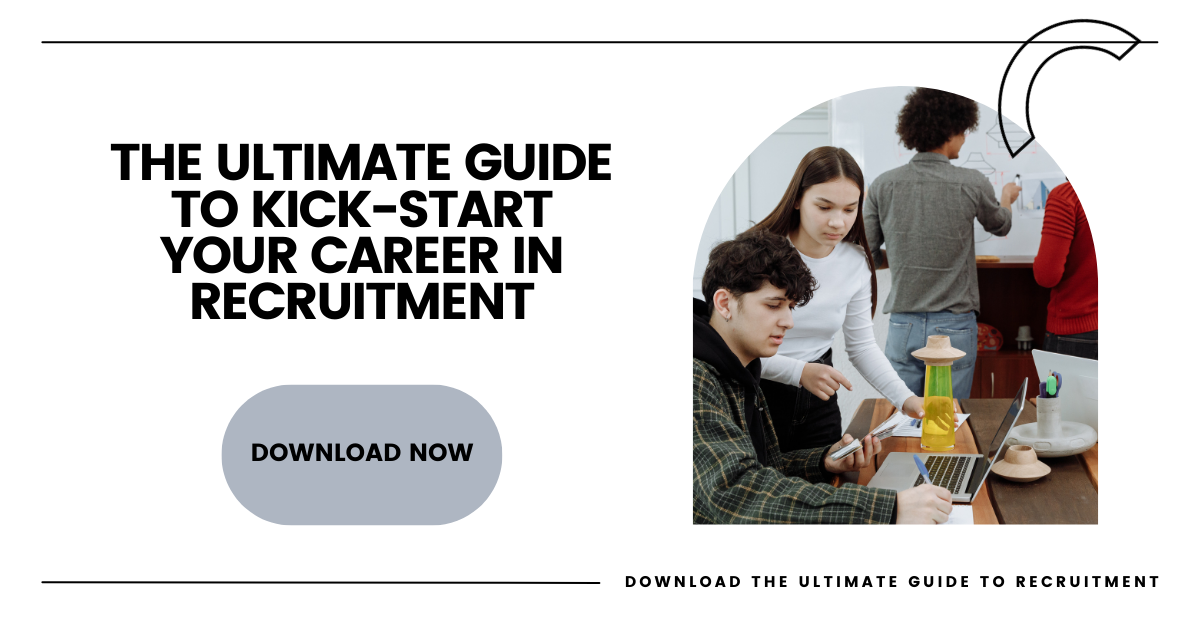
In this instalment of People Behind the Brand, the series where you get to know the Orbis team, we sit down with Senior Cloud Consultant Richard Hindmarch.
We caught up on all things recruitment, his inspirations, working in the DACH region market and his insane experience at Cambridge University.
Tell us about your journey to recruitment...
As a fresh graduate, I started in recruitment at a small tech recruitment agency in Newcastle. It was meant to be a short-term stopgap for me. I wanted to improve my people skills and build up some savings before moving to London and going down a completely different career path... I ended up being with that company for 3.5 years!
During that time, I built out a cold desk from scratch, created a self-sustaining market, became a Senior, and then a Team Leader with a team of 3 at one point (one of them, a very good friend of mine, is now with us at Orbis!).
Beginning to grow tired of Newcastle having spent most of my life there, I decided to change cities. I decided that a move to New York would be the best opportunity for me to achieve my goals. Sadly, despite receiving 3 job offers and accepting one of them, my visa was declined, so I had to go to my backup plan which was a move to London.
Luckily for me, I landed on my feet and joined Orbis! I have not looked back since. I could not be at a better company for me and in the end, that visa rejection was a blessing in disguise.
Having said that, starting in April 2020 was far from ideal! People tend to forget just how damaging the first lockdown was.
It was catastrophic for the recruitment industry! Very few companies were hiring, there was so much uncertainty, many recruiters were losing their jobs/going on furlough, and many recruitment agencies folded.
Starting a new job in recruitment, trying to build out a market (Cloud) that was new to me, in a region (DACH) that I had not worked in before, during a time when the entire recruitment market had ground to a halt was incredibly challenging, to say the least.
Working remotely for pretty much my full first year at Orbis was also tough. I didn’t feel like I knew my colleagues on a personal level. I felt a little isolated in the North. And I struggled to learn and improve. As a result, I was not performing at the level I was capable of.
However, Orbis always supported me and the understanding and patience from the business during a tough situation are greatly appreciated.
Luckily, I rode the storm and just about got through 2020. I began to adapt to the Orbis style of recruitment and really kicked on in 2021 and have been performing well since - reaping the rewards of a few Lunch Clubs and the extravagant and extraordinary Orbis Ski Trip!
What's the best part of the job?
Closing deals! Any recruiter who gives a different answer is lying, haha! Nothing beats the thrill of closing a deal you have been working on for weeks or even months.
It is not just the thrill of a deal or the buzz of making some commission – sometimes the best part is sharing your candidates’ happiness! I think this is the most underrated perk of the job. As recently as last week, a candidate (who I would now classify as a friend) said to me, “you’ve changed my life” and that genuinely brought me more joy than the commission or billings I earned from that placement.
What's the biggest challenge?
Resilience is a word that is thrown around a lot in recruitment.
I have seen so many people come and go in recruitment. People who dip their toes in, then leave in a few months.
The ones who stick it out and become successful are the ones who take knock-out punches, pick themselves up off the floor, and come back swinging.
This year I have already had a number of placements fall out in a short space of time. My billings and personal commission were decimated! If I were not as resilient or didn’t have as much self-belief, I might have given up. However, luck turns, and I have had a good run recently, so it goes to show - resilience and determination pay off.
What’s something you wish you’d known at the start of your career?
I wish I had known of Orbis sooner!
Even though I had 3.5 years of experience when I joined, I have learned so much in the 2 years I have been here. The opportunity to learn from some of the best in the business has significantly helped me strengthen my own skills.
In another life... If you weren't a recruiter, what would you be doing?
Who knows?
At one point, I thought I was going to be a lawyer. At another point, I thought I would be working in quantity surveyance. When I was younger, I thought I wanted to be a dentist. As a graduate, I very nearly became a financial analyst.
“If you don’t know where you’re going, any road will take you there”.
We love this quote from your LinkedIn profile “Be the Senior that you needed when you were a Junior” - Which mentors have inspired you?
I saw this quotation on someone else’s profile, and it jumped out at me; I had to nab it for myself!
Ryan Orton was my first manager with Orbis, and he has believed in me from day one. Even when I wasn’t performing at the level expected, he still believed in me, even more than I believed in myself, haha! Without his backing and support, I do not think I would have turned things around.
As I mentioned earlier, I have learnt a lot in the last 2 years. And a lot of the granular recruitment aspects I have improved have been down to my current manager, Sai Kapur.
He has helped tweak several aspects of my approach to recruitment. From the bigger picture, such as helping me with my recruitment strategy, looking at what to focus on and how to allocate time to it – to the finer details, such as how to format a CV and do a well-structured write-up.
I have learnt a lot from Sai - all these little bits and pieces of information, when all added together, make the world of difference.
How do you mentor others? And what makes a great leader?
I try to advise, help them understand, and let them have their own input.
People learn most efficiently from doing rather than watching. So, allowing people to take their own actions and make their own mistakes is the best way to go about it in my opinion. Of course, you have to be there to guide them and help them when things go wrong.
The best leaders identify where a person can improve and highlight this to the person in a way that is positive, structured, and with a defined outcome.
You have quite an academic background, and graduated from Cambridge! Tell us about that environment and how much it differs from the world of work.
Ha! I don’t really identify myself as a Cambridge graduate anymore. I started university 9 years ago and graduated 6 years ago, it’s a long in the past for me.
I have been doing recruitment for twice as long, so I fully identify as a recruiter these days! I try not to mention my degree, but it is often brought up by others - which is nice as it is an achievement of mine, and one that will be with me forever - but I prefer to look forwards and focus on what I will achieve next.
To answer the question; the environment at Cambridge was insane. It is hard to describe, you kind of have to live it to understand it.
It is a bubble, where the only thing that matters is academia. The pressure is immense. No matter how much pressure I have been under at work, nothing will ever match the pressure you feel at a place like Cambridge.
What makes this worse is that you spend most of your time alone. I spent the majority of my time in my room alone, studying in silence for hours on end. And this was the norm for everyone. It can become a very lonely experience. The best thing about recruitment is that I am always interacting with people, whether that is with candidates, clients, or colleagues. I am much happier being a recruiter than I was a student!
What do you enjoy about working in the DACH region market? What’s unique about it compared to the UK?
The DACH market and the UK market are two very different markets.
With DACH, your approach has to be a lot softer and less direct. Discussing commercials with a client or salary with a candidate is viewed as something that should only happen after a relationship has been built.
Also, in the DACH region, they do not rush. You cannot be too pushy in your approach. They take their time, follow processes, and will operate in a manner that can be described as methodical.
UK recruitment is more urgent and fast-paced. New demand comes in, and the clients will look to fill these requirements as soon as possible in most cases.
There are pros and cons to both markets. The DACH market can be better in terms of defined and clear processes and certainty, whereas the UK market can be better when you need a quick win and quick turnaround.
I enjoy having the option to do both markets!



